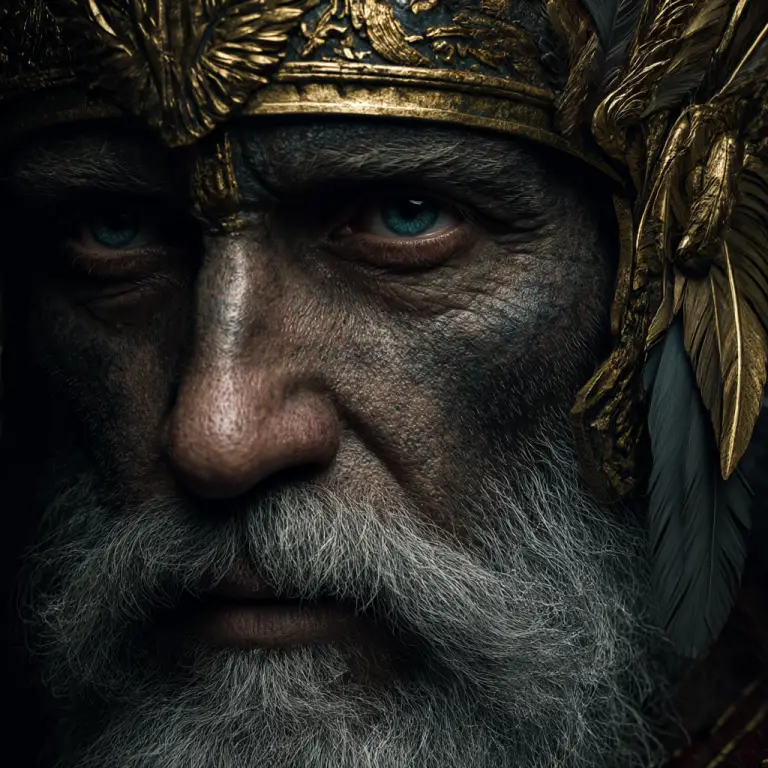Skírnir: Messenger of the Gods in Norse Mythology
Origins
Skírnir is a significant figure in Norse mythology, best known as the devoted servant and messenger of Freyr, one of the Vanir gods associated with fertility, prosperity, and kingship. Though not a deity himself, Skírnir occupies an important role as an intermediary, representing the enforcement of divine will and the use of strategy and magical knowledge to navigate the complex relationships between gods, humans, and giants.
Role in Myth
Skírnir’s most famous appearance is in the Poetic Edda poem Skírnismál. In this story, Freyr falls in love with the giantess Gerðr, but divine rules and the boundaries between gods and giants prevent him from approaching her directly. Skírnir is sent to deliver Freyr’s proposal, armed with Freyr’s magical sword and the authority to negotiate or enforce compliance.
He first attempts to persuade Gerðr with gifts and promises, highlighting the honour and joy of marrying Freyr. When this approach fails, Skírnir uses threats and magical runes, warning her of misery and isolation if she refuses. His mission succeeds, demonstrating both his cunning and the weight of his authority as a divine envoy.
Powers and Abilities
Skírnir is skilled in the use of runes, the magical symbols of Norse culture, which he employs to compel and intimidate. He wields Freyr’s enchanted sword, a weapon that can act independently in battle, symbolising the divine power and protection granted to him. Skírnir’s abilities combine diplomacy, magical knowledge, and strategic threat, making him a versatile and effective agent of the gods.
Cultural Significance
Skírnir represents loyalty, resourcefulness, and the morally complex use of power. His actions illustrate the Norse understanding of mediation and the interplay between persuasion and coercion in achieving desired outcomes. While he does not receive worship, his role is critical in the narrative of Freyr and Gerðr, showing how intermediaries shape events within the mythological cosmos.
Symbolism
Skírnir embodies the archetype of the devoted servant whose intelligence and magical skill enable him to bridge worlds. He reflects themes of duty, strategic thinking, and the negotiation of power between divine and non-divine beings. His dual approach of reward and threat highlights the Norse conception of fate, showing that achieving destiny may require cunning, force, or both.
Appearances in Literature
Skírnir appears most prominently in Skírnismál, part of the Poetic Edda. Beyond this, he features in minor references within other Eddic texts, always acting as an emissary for the Vanir gods. Unlike major gods such as Odin or Thor, he rarely acts independently, which reinforces his role as a facilitator and messenger rather than a central figure.
Interesting Facts
- Skírnir is sometimes interpreted as an archetype of negotiation and enforcement, combining diplomacy with magical threat.
- His use of runes in Skírnismál is one of the clearest examples in Norse mythology of runic magic being applied to compel a desired outcome.
- Skírnir’s mission highlights the interaction between gods and giants, demonstrating both the divisions and the necessary cooperation between different realms.
- While his actions may seem morally ambiguous, they emphasise the Norse belief that loyalty and duty often require difficult choices.



